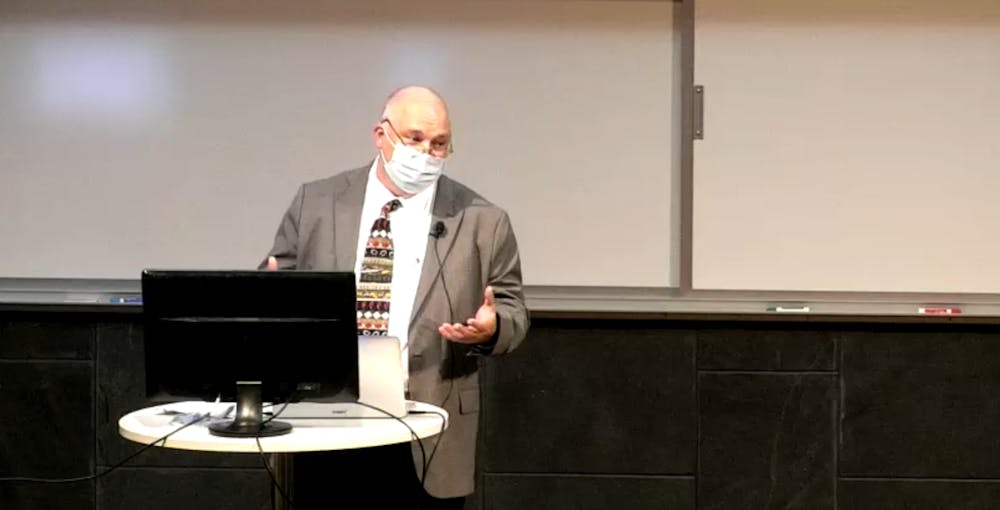Academic Senate expresses concern over new research database

At its bi-weekly meeting on Tuesday, the Academic Senate viewed a presentation on a new research database, which was met with worry from faculty senators.
Vice President of Research and Innovation David Weindorf presented three new programs that will manage Central Michigan University's research database. The software are called SciVal, Scholars and Scopus. According to Weindorf, these tools are meant to help researchers find the published works of CMU academics and network with them. The sites also compare CMU's research efforts with other universities.
The software will cost $100,897 to implement, Weindorf said. That cost will be split between the Office of the Provost and the Office of Research and Graduate Studies. Senators raised questions and concerns about how academic research is unequal between departments.
Senator Martha Frank said some areas of study are not equitably represented by journal databases. Frank worked with colleagues on a journal called "Mathematics Teacher Educator," which she said is missing from SciVal.
"If you're not in biology or some of the other STEM fields, it doesn't necessarily reflect all of the scholarly work that a person is doing," Frank said, "and I'm sure my colleagues from other non-STEM fields can corroborate this."
Frank said Scopus makes it difficult to recognize when someone changes their name, which disproportionately affects women based on marital status.
Senator Will Anderson, a faculty in the School of Broadcast and Cinematic Arts, said his area of work is not well represented in databases like SciVal. He said those databases are "STEM-centric."
"No tool is perfect," Weindorf said. "What we're attempting to do here is just provide another tool in the tool belt of a modern research enterprise to help understand our university."
Senator Amanda Garrison said there is a difference in resources preventing some departments from doing as much research as others. She said many programs and departments lack the money for things like travel and professional development right now.
"(The software) feels strangely timed in a historic moment when we don't have the resources that we need to do the good research that we usually do," Garrison said "And so I'm concerned that we're really excited about something new and shiny when we need to be sort of conservative with how we're spending our resources."
"The conditions of research are not spread evenly across campus."
Some senators said the timing of the new database will put programs on unequal footing. Academic prioritization and marquee programs have been ongoing discussions at CMU.
Senator Tracy Collins emphasized a point of the presentation which said the new software will be used for "strategic planning and programming."
"The administration might not use this to evaluate faculty," Collins said. "But the timing here is not coincidental. As we have noticed in the past few months, this tool will absolutely be used as just one more subtle way to actively undermine, discourage and ultimately shut down programs the administration has not defined as premier. I hope this doesn't turn out to be true, but I fear that it will."
Academic Senate meetings are held from 3:30-5 p.m. bi-weekly on Tuesdays in the French Auditorium. Livestream and recording links can be found on the senate website.






